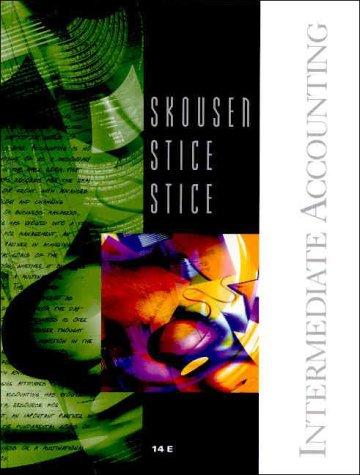Question
Twenty metrics of liquidity, Solvency, and Profitability The comparative financial statements of Automotive Solutions Inc. are as follows. The market price of Automotive Solutions Inc.
Twenty metrics of liquidity, Solvency, and Profitability
The comparative financial statements of Automotive Solutions Inc. are as follows. The market price of Automotive Solutions Inc. common stock was $60 on December 31, 20Y8.
| AUTOMOTIVE SOLUTIONS INC. Comparative Income Statement For the Years Ended December 31, 20Y8 and 20Y7 | ||||
| 20Y8 | 20Y7 | |||
| Sales | $1,841,060 | $1,696,210 | ||
| Cost of goods sold | (719,780) | (662,200) | ||
| Gross profit | $1,121,280 | $1,034,010 | ||
| Selling expenses | $(341,150) | $(426,150) | ||
| Administrative expenses | (290,600) | (250,280) | ||
| Total operating expenses | (631,750) | (676,430) | ||
| Operating income | $489,530 | $357,580 | ||
| Other revenue and expense: | ||||
| Other income | 25,770 | 22,820 | ||
| Other expense (interest) | (128,000) | (70,400) | ||
| Income before income tax | $387,300 | $310,000 | ||
| Income tax expense | (46,500) | (37,300) | ||
| Net income | $340,800 | $272,700 | ||
| AUTOMOTIVE SOLUTIONS INC. Comparative Statement of Stockholders Equity For the Years Ended December 31, 20Y8 and 20Y7 | ||||||||||||||||||
| 20Y8 | 20Y7 | |||||||||||||||||
| Preferred Stock | Common Stock | Retained Earnings | Preferred Stock | Common Stock | Retained Earnings | |||||||||||||
| Balances, Jan. 1 | $320,000 | $360,000 | $1,567,700 | $320,000 | $360,000 | $1,331,200 | ||||||||||||
| Net income | 340,800 | 272,700 | ||||||||||||||||
| Dividends: | ||||||||||||||||||
| Preferred stock | (5,600) | (5,600) | ||||||||||||||||
| Common stock | (30,600) | (30,600) | ||||||||||||||||
| Balances, Dec. 31 | $320,000 | $360,000 | $1,872,300 | $320,000 | $360,000 | $1,567,700 | ||||||||||||
| AUTOMOTIVE SOLUTIONS INC. Comparative Balance Sheet December 31, 20Y8 and 20Y7 | |||||
| Dec. 31, 20Y8 | Dec. 31, 20Y7 | ||||
| Assets | |||||
| Current assets: | |||||
| Cash | $318,150 | $367,150 | |||
| Temporary investments | 481,520 | 608,410 | |||
| Accounts receivable (net) | 365,000 | 343,100 | |||
| Inventories | 277,400 | 219,000 | |||
| Prepaid expenses | 60,186 | 73,430 | |||
| Total current assets | $1,502,256 | $1,611,090 | |||
| Long-term investments | 1,331,884 | 734,406 | |||
| Property, plant, and equipment (net) | 1,760,000 | 1,584,000 | |||
| Total assets | $4,594,140 | $3,929,496 | |||
| Liabilities | |||||
| Current liabilities | $441,840 | $801,796 | |||
| Long-term liabilities: | |||||
| Mortgage note payable, 8%, due in 15 years | $720,000 | $0 | |||
| Bonds payable, 8%, due in 20 years | 880,000 | 880,000 | |||
| Total long-term liabilities | $1,600,000 | $880,000 | |||
| Total liabilities | $2,041,840 | $1,681,796 | |||
| Stockholders' Equity | |||||
| Preferred $0.70 stock, $40 par | $320,000 | $320,000 | |||
| Common stock, $10 par | 360,000 | 360,000 | |||
| Retained earnings | 1,872,300 | 1,567,700 | |||
| Total stockholders' equity | $2,552,300 | $2,247,700 | |||
| Total liabilities and stockholders' equity | $4,594,140 | $3,929,496 | |||
Instructions:
Determine the following measures for 20Y8. Round ratio values to one decimal place and dollar amounts to the nearest cent. For number of days' sales in receivables and number of days' sales in inventory, round intermediate calculations to the nearest whole dollar and final amounts to one decimal place. Assume there are 365 days in the year.
| 1. Working capital | $fill in the blank 1 | |
| 2. Current ratio | fill in the blank 2 | |
| 3. Quick ratio | fill in the blank 3 | |
| 4. Accounts receivable turnover | fill in the blank 4 | |
| 5. Days' sales in receivables | fill in the blank 5 | days |
| 6. Inventory turnover | fill in the blank 6 | |
| 7. Days' sales in inventory | fill in the blank 7 | days |
| 8. Debt ratio | fill in the blank 8 | % |
| 9. Ratio of liabilities to stockholders' equity | fill in the blank 9 | |
| 10. Ratio of fixed assets to long-term liabilities | fill in the blank 10 | |
| 11. Times interest earned | fill in the blank 11 | times |
| 12. Times preferred dividends earned | fill in the blank 12 | times |
| 13. Asset turnover | fill in the blank 13 | |
| 14. Return on total assets | fill in the blank 14 | % |
| 15. Return on stockholders equity | fill in the blank 15 | % |
| 16. Return on common stockholders equity | fill in the blank 16 | % |
| 17. Earnings per share on common stock | $fill in the blank 17 | |
| 18. Price-earnings ratio | fill in the blank 18 | |
| 19. Dividends per share of common stock | $fill in the blank 19 | |
| 20. Dividend yield | fill in the blank 20 | % |
Step by Step Solution
There are 3 Steps involved in it
Step: 1

Get Instant Access to Expert-Tailored Solutions
See step-by-step solutions with expert insights and AI powered tools for academic success
Step: 2

Step: 3

Ace Your Homework with AI
Get the answers you need in no time with our AI-driven, step-by-step assistance
Get Started


